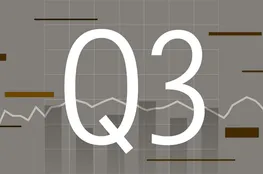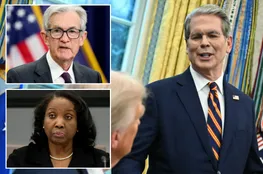The European Central Bank (ECB) may need to reconsider its approach to monetary policy as the risk of eurozone inflation dropping below its 2% target garners attention. French central bank governor François Villeroy de Galhau expressed that the ECB might need to focus more on preventing undershooting, rather than overshooting this benchmark. Recently, the ECB had lowered its interest rates by 25 basis points to invigorate a sluggish economy, a move prompted by eurozone inflation declining to 1.7% in September amid slow growth, particularly in Germany.
According to Villeroy, the potential for inflation undershooting the target in the long term is as significant a risk as overshooting, suggesting timely reductions in the policy's restrictive nature. Shifting its focus, the ECB now prioritizes stimulating economic growth over curbing inflation. The bank recognizes that risks to economic growth are primarily downward, with projections indicating a mere 0.7% growth in GDP for 2024 and 1.2% for 2025, slightly below previous forecasts. In response to economic frailty, Villeroy advocates for additional rate cuts.
The ECB maintains a stance of keeping policy rates sufficiently restrictive to achieve its 2% target within the medium term, as per President Christine Lagarde, despite the current undershooting. She believes that the process of disinflation is progressing well. The ECB's recent decisions to cut deposit rates to 3.25%, marking consecutive actions not seen in over a decade, indicate a shift in strategy inspired partly by broader monetary moves like the Federal Reserve's 50 basis point reduction.
Villeroy highlighted the contribution of factors such as moderate private investment and increased household savings, which reached 15.7%—well above pre-pandemic levels. Geopolitical factors also play a critical role in shaping ECB's monetary decisions. Villeroy urges a pragmatic and agile pace to adapt to uncertainties, considering potential global disruptions such as U.S. tariffs under Donald Trump's proposals and ongoing geopolitical tensions in Ukraine and the Middle East.
As Europe's economy stands vulnerable due to its openness amidst shifting trade dynamics, ECB Governor Christine Lagarde remarks on how the global order is transforming towards more fragmented trade and state-sponsored competition. Despite prevailing challenges, Lagarde conveys optimism, suggesting that with the appropriate approach, Europe's current challenges might spearhead an era of renewal and growth.
Disclaimer: This article contains opinions not to be construed as investment advice and solely reflects the views of the authors. European Capital Insights holds no responsibility for financial decisions made based on this content. This piece serves informational and educational purposes and does not represent Benzinga’s reporting. © 2024 Benzinga.com. All rights reserved.
























